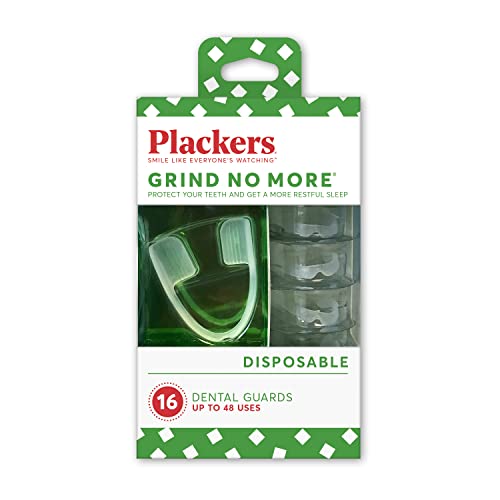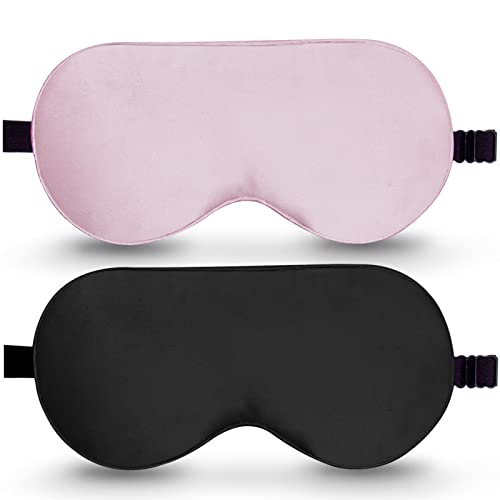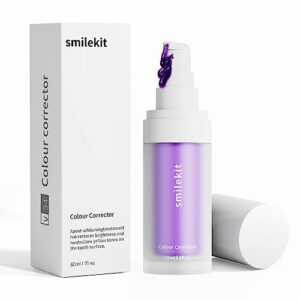Have you ever found yourself waking up with a sore jaw or a headache? If so, you’re not alone. Many of us experience the frustrating and often painful habit of teeth grinding, also known as bruxism. We understand the discomfort and worry that comes with this condition, which is why we’ve decided to delve into the topic and provide you with some much-needed information. In this blog post, we’ll explore what teeth grinding is, its potential causes, and most importantly, how you can find relief. So, sit back, relax, and let us guide you through this journey towards understanding and managing teeth grinding.
Protect Your Teeth and Find Relief with Our Bestselling Teeth Grinding Guards
What is teeth grinding?
Teeth grinding, also known as bruxism, is a common dental condition that affects both children and adults. It occurs when a person involuntarily clenches or grinds their teeth, often without being aware of it. While the exact cause of bruxism is not fully understood, it is believed to be associated with a combination of factors, including stress, anxiety, misaligned teeth, and sleep disorders.
Symptoms of teeth grinding
Teeth grinding can manifest in various ways, and the symptoms may differ from person to person. Some common signs of bruxism include:
- Audible grinding: Grinding noises during sleep can be heard by a partner or family member.
- Worn tooth enamel: Over time, teeth grinding can wear down the enamel, leading to tooth sensitivity and even tooth fractures.
- Jaw pain: Consistent clenching and grinding can cause pain and discomfort in the jaw joint, known as the temporomandibular joint (TMJ).
- Headaches: Frequent teeth grinding can lead to chronic headaches, particularly upon waking up in the morning.
- Facial pain: The muscles in the face may become sore and tender due to excessive grinding.
- Disrupted sleep: Bruxism can disrupt sleep patterns, leading to daytime sleepiness and fatigue.
Types of teeth grinding
Teeth grinding can be categorized into two main types: sleep bruxism and awake bruxism.
- Sleep bruxism: This is the most common type and occurs during sleep. It may be associated with sleep disorders such as sleep apnea or snoring. Sleep bruxism often goes unnoticed until a partner or family member hears the grinding noise.
- Awake bruxism: Unlike sleep bruxism, awake bruxism occurs during waking hours and is often a result of stress or anxiety. People with awake bruxism may clench their teeth when concentrating, feeling tense, or engaging in activities that require physical exertion.
The impact of teeth grinding
Teeth grinding may seem like a minor issue, but it can have significant consequences for oral health and overall well-being. Some of the potential impacts include:
- Tooth damage: Persistent grinding can wear down the tooth enamel, leading to tooth sensitivity, fractures, and even tooth loss.
- TMJ disorders: The excessive strain placed on the jaw joint during grinding can contribute to the development of temporomandibular joint disorders, causing jaw pain, clicking, or limited jaw movement.
- Headaches and facial pain: The constant pressure and muscle tension from grinding can result in chronic headaches and facial pain, affecting daily life and overall comfort.
- Sleep disturbances: Bruxism can disrupt sleep patterns, causing restless nights and daytime fatigue.
- Affects quality of life: The physical discomfort and dental issues associated with teeth grinding can impact a person’s quality of life, leading to decreased enjoyment of food, difficulty speaking, and emotional distress.
Treatment and prevention options
Fortunately, there are several treatment and prevention options available to manage teeth grinding. These include:
- Mouthguards: Custom-fitted mouthguards can help protect the teeth from grinding and reduce muscle tension.
- Stress management techniques: Learning to manage stress and anxiety through techniques like meditation, exercise, and therapy can help alleviate bruxism.
- Improving sleep habits: Addressing underlying sleep disorders and establishing good sleep hygiene practices can reduce the likelihood of grinding during sleep.
- Dental interventions: In some cases, dental procedures like orthodontic treatment or dental splints may be recommended to address misaligned teeth and alleviate the pressure on the jaw joint.
Causes of teeth grinding
Teeth grinding, also known as bruxism, is a common condition that affects many people. It occurs when a person involuntarily clenches or grinds their teeth, often during sleep. This habit can lead to a range of dental problems and discomfort, making it important to understand the underlying causes of teeth grinding. By identifying these causes, you can effectively manage and treat the condition, improving your oral health and overall well-being.
Stress and Anxiety
Stress and anxiety are two common triggers for teeth grinding. When we experience high levels of stress or anxiety, our bodies can respond with muscle tension, including clenching of the jaw. This can happen during sleep, leading to teeth grinding. If you find yourself grinding your teeth during particularly stressful periods or when feeling anxious, it’s important to address the root causes of these emotions to help reduce bruxism.
Abnormal Bite
An abnormal bite, also known as malocclusion, occurs when the teeth do not align properly when the jaw is closed. This misalignment can cause the teeth to grind against each other, leading to bruxism. If you suspect that your teeth grinding is caused by an abnormal bite, it’s recommended to consult with a dentist or orthodontist who can evaluate your bite and recommend appropriate treatment options.
Sleep Disorders
Certain sleep disorders, such as sleep apnea, can contribute to teeth grinding. Sleep apnea is a condition in which a person temporarily stops breathing during sleep, often accompanied by loud snoring. People with sleep apnea may also grind their teeth as a response to the interrupted breathing. Treating the underlying sleep disorder can help alleviate teeth grinding associated with sleep apnea.
Medications
In some cases, certain medications can trigger teeth grinding as a side effect. Medications such as antidepressants, antipsychotics, and stimulants may increase the risk of bruxism. If you suspect that your teeth grinding is caused by medication, it’s important to speak with your healthcare provider. They can evaluate your medication regimen and explore alternative options or adjust dosages to help reduce the occurrence of bruxism.
Identifying the Cause
Identifying the underlying cause of teeth grinding is crucial for effective management and treatment. By addressing the root cause, you can implement targeted strategies to alleviate symptoms and prevent further damage to your teeth. Here are some steps you can take:
- Keep a journal: Track your teeth grinding episodes and note any potential triggers, such as stressful events or medication changes.
- Consult with a healthcare professional: Speak with your dentist or healthcare provider to discuss your symptoms and potential causes.
- Undergo a dental examination: A dental examination can help identify any dental issues, such as malocclusion, that may contribute to teeth grinding.
- Evaluate your lifestyle: Consider any lifestyle factors, such as stress levels, sleep patterns, and medication use, that may be exacerbating your teeth grinding.
Remember, managing teeth grinding requires a holistic approach. By addressing the root cause, seeking professional guidance, and implementing lifestyle changes, you can alleviate the discomfort and potential dental consequences associated with bruxism. Take care of your oral health, and seek assistance to ensure a peaceful night’s sleep and a healthy smile.
Effects of teeth grinding
Teeth grinding, also known as bruxism, is a common problem that affects many individuals. Often occurring during sleep, this involuntary habit can have several negative effects on your oral health and overall well-being. In this blog section, we will explore the various consequences of teeth grinding and why it is important to address this issue promptly.
Tooth Damage
One of the primary effects of teeth grinding is tooth damage. The constant grinding and clenching of teeth can wear down the enamel, the protective outer layer of the teeth. Over time, this can lead to tooth sensitivity, increased risk of tooth decay, and even tooth fractures. If left untreated, severe tooth damage may require costly dental procedures, such as crowns or veneers, to restore the appearance and functionality of your teeth.
Jaw Pain and TMJ Disorders
Teeth grinding puts excessive pressure on the jaw joints, leading to jaw pain and discomfort. This can manifest as temporomandibular joint disorders (TMJ), which affect the muscles, joints, and ligaments that connect the jawbone to the skull. TMJ disorders can cause a range of symptoms, including jaw stiffness, difficulty opening or closing the mouth, clicking or popping sounds when you chew, and even earaches. These conditions can significantly impact your quality of life and may require specialized treatment.
Headaches
If you frequently wake up with headaches, teeth grinding may be the culprit. The excessive force exerted on your teeth and jaw joints during grinding can result in tension headaches or migraines. These headaches can be debilitating and affect your ability to concentrate, work, or enjoy daily activities. By addressing the underlying cause of teeth grinding, you may find relief from these recurring headaches.
Disturbed Sleep
Teeth grinding can also disrupt your sleep patterns, leading to restless nights and daytime fatigue. The grinding noises can be loud enough to disturb your partner’s sleep as well. Furthermore, the physical discomfort caused by teeth grinding can prevent you from achieving deep and restful sleep, leaving you feeling tired and unrefreshed in the morning. Treating bruxism can help restore your sleep quality, leaving you more energized and ready to tackle the day.
Preventing the Negative Effects of Teeth Grinding
Now that we have explored the various effects of teeth grinding, it is crucial to understand how to prevent or manage this condition. Here are some methods that can help:
- Wearing a custom-made nightguard or splint to protect your teeth from grinding.
- Practicing stress-reducing techniques, such as meditation or yoga, to alleviate anxiety and tension that may contribute to teeth grinding.
- Avoiding stimulating substances such as caffeine and alcohol, especially close to bedtime.
- Maintaining a consistent sleep routine and ensuring your sleep environment is conducive to relaxation.
- Seeking professional help from a dentist or healthcare provider for further evaluation and treatment options.
By taking proactive steps to address teeth grinding, you can minimize the negative effects on your oral health and overall well-being. Remember, early intervention is key to preventing further damage and achieving long-term relief.
If you suspect that you grind your teeth, don’t hesitate to reach out to a dental professional who can provide guidance tailored to your specific needs.
Treatment and prevention
Teeth grinding, also known as bruxism, can be a distressing condition that affects numerous individuals. Fortunately, there are several treatment options available to help alleviate the symptoms and prevent further damage. In this blog section, we will explore various treatment methods and prevention techniques to help you understand and address teeth grinding effectively.
1. Wearing a Nightguard
A nightguard is a customized dental appliance that is worn during sleep to protect the teeth and alleviate the pressure caused by grinding. This device acts as a cushion, absorbing the force and preventing further damage to the teeth. Some key benefits of wearing a nightguard include:
- Provides a barrier between the upper and lower teeth, reducing the impact of grinding.
- Protects the tooth enamel from erosion and potential fractures.
- Helps alleviate jaw pain, headaches, and muscle tension associated with bruxism.
- Customizable to fit your mouth comfortably for a good night’s sleep.
2. Stress Management Techniques
Stress is often a significant contributor to teeth grinding. Implementing stress management techniques can help reduce the frequency and intensity of grinding episodes. Some useful techniques to consider include:
- Engaging in regular exercise to release tension and promote relaxation.
- Practicing relaxation techniques such as deep breathing exercises or meditation.
- Seeking counseling or therapy to address underlying emotional stressors.
- Prioritizing self-care activities, such as hobbies or activities that help you unwind.
3. Dental Corrections
Sometimes, dental corrections may be necessary to treat teeth grinding effectively. This involves identifying and addressing any underlying dental issues that could contribute to bruxism. Dental corrections may include:
- Orthodontic treatment to correct misaligned teeth or an improper bite.
- Dental restorations to repair damaged teeth or replace missing teeth.
- Reshaping or adjusting the biting surfaces of the teeth to improve alignment and reduce grinding.
4. Medication
In certain cases, medication may be prescribed to manage teeth grinding. While medication does not address the root cause of bruxism, it can help alleviate symptoms and promote better sleep. Some commonly prescribed medications include:
- Muscle relaxants to reduce jaw muscle tension.
- Anti-anxiety medications to address stress-related bruxism.
- Sleep aids to promote a more restful sleep and reduce grinding.
Prevention Techniques for Teeth Grinding
In addition to treatment options, implementing preventive techniques can help reduce the occurrence and severity of teeth grinding. By incorporating the following practices into your daily routine, you can minimize the impact of bruxism:
- Stress reduction: Engage in stress-reducing activities such as yoga, meditation, or regular exercise.
- Avoid stimulating substances: Limit the consumption of caffeine and alcohol, as these can exacerbate grinding tendencies.
- Maintain good oral hygiene: Brushing and flossing regularly can help prevent complications associated with bruxism, such as tooth decay or gum disease.
- Practice relaxation techniques: Incorporate relaxation exercises into your routine, such as deep breathing or progressive muscle relaxation.
By combining these preventive techniques with appropriate treatment options, you can effectively manage teeth grinding and improve your overall oral health. Remember, it’s essential to consult with a dental professional who can provide personalized advice and treatment recommendations based on your specific needs. Take the necessary steps today to protect your teeth and alleviate the discomfort caused by bruxism.
Understanding the Causes and Solutions
In conclusion, we now understand that teeth grinding is a prevalent issue that can greatly affect both our oral health and overall well-being. If any of us suspect that we or someone we know may be grinding our teeth, it is crucial to seek the guidance of a dentist for proper diagnosis and suitable treatment. Wearing a teeth grinding guard can prove to be an effective solution in safeguarding our teeth and alleviating any associated symptoms. Let us prioritize the care of our teeth and always seek professional advice to ensure optimal oral health.





















